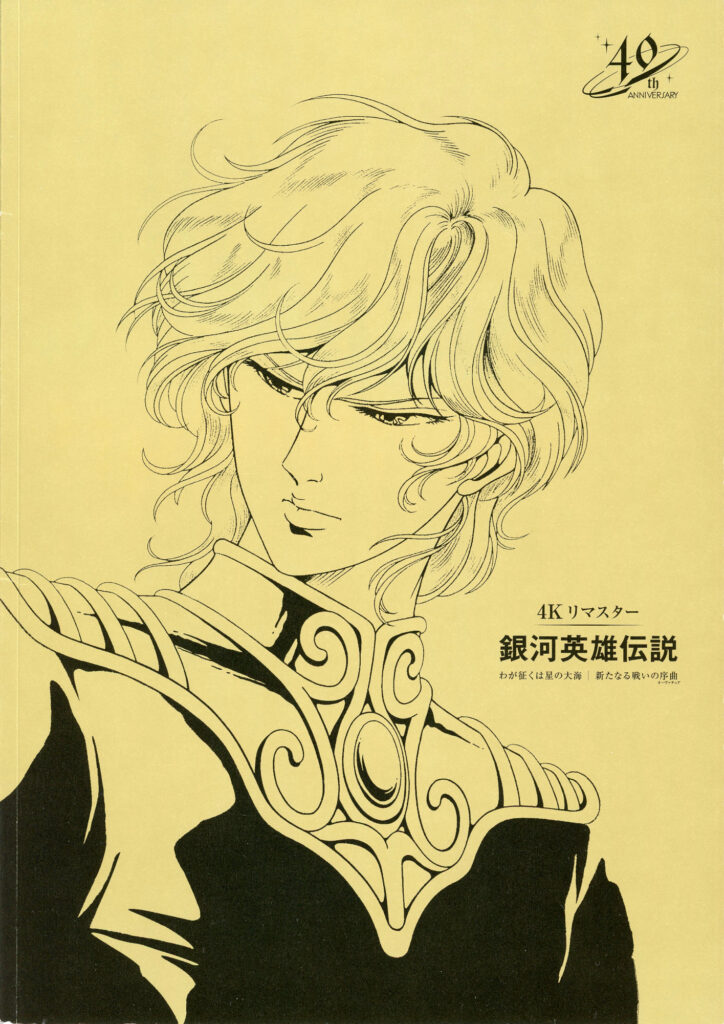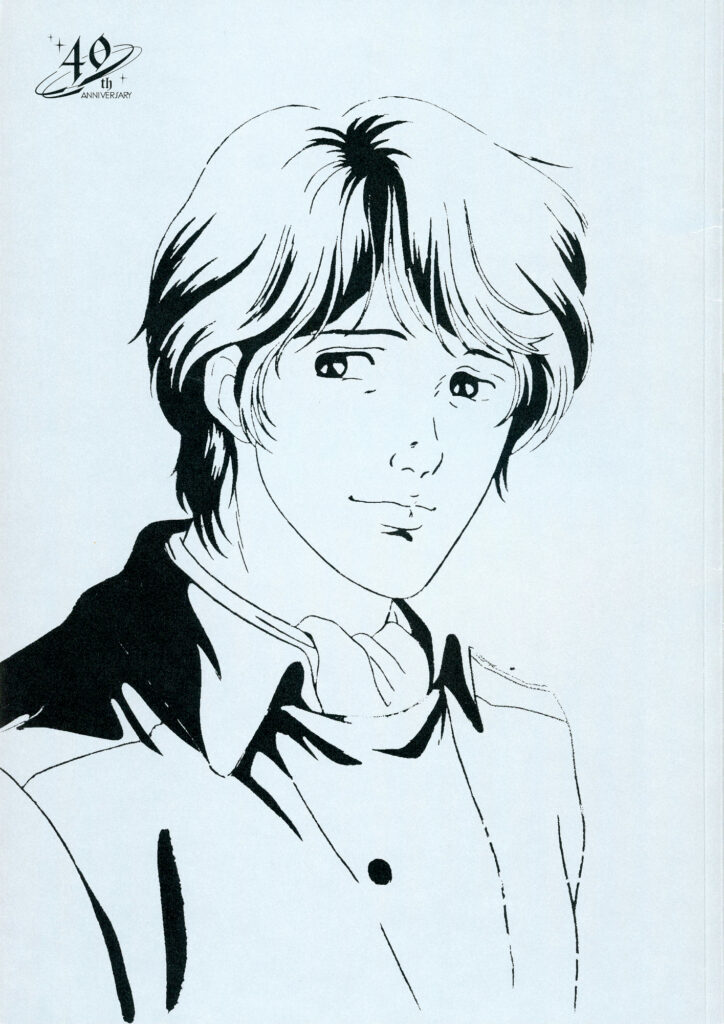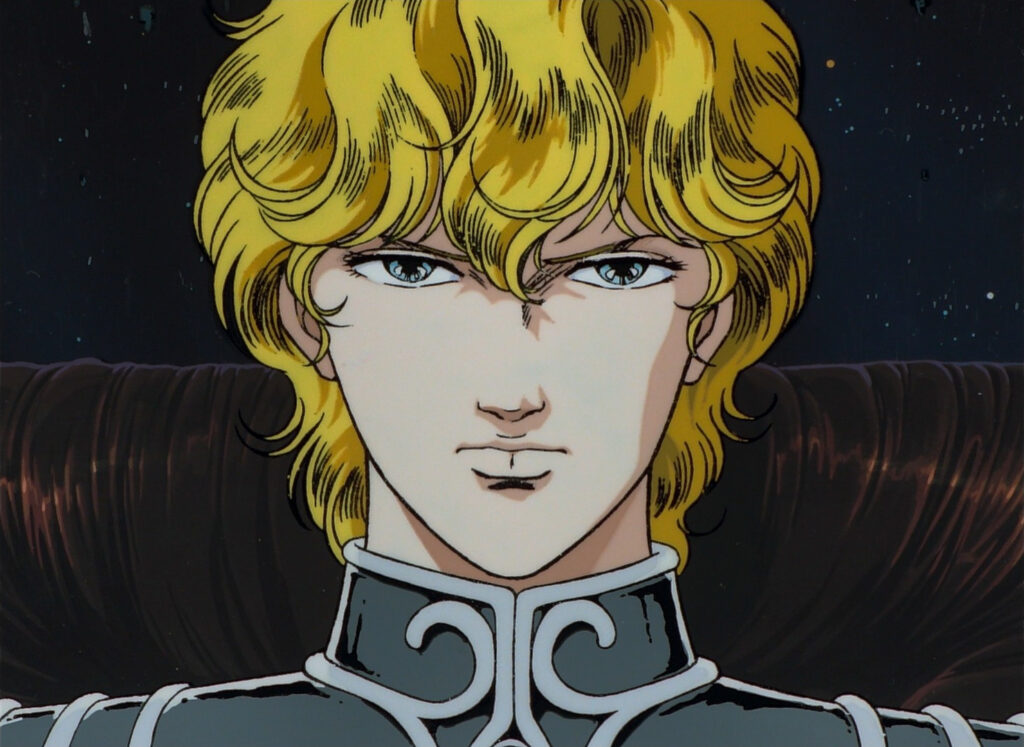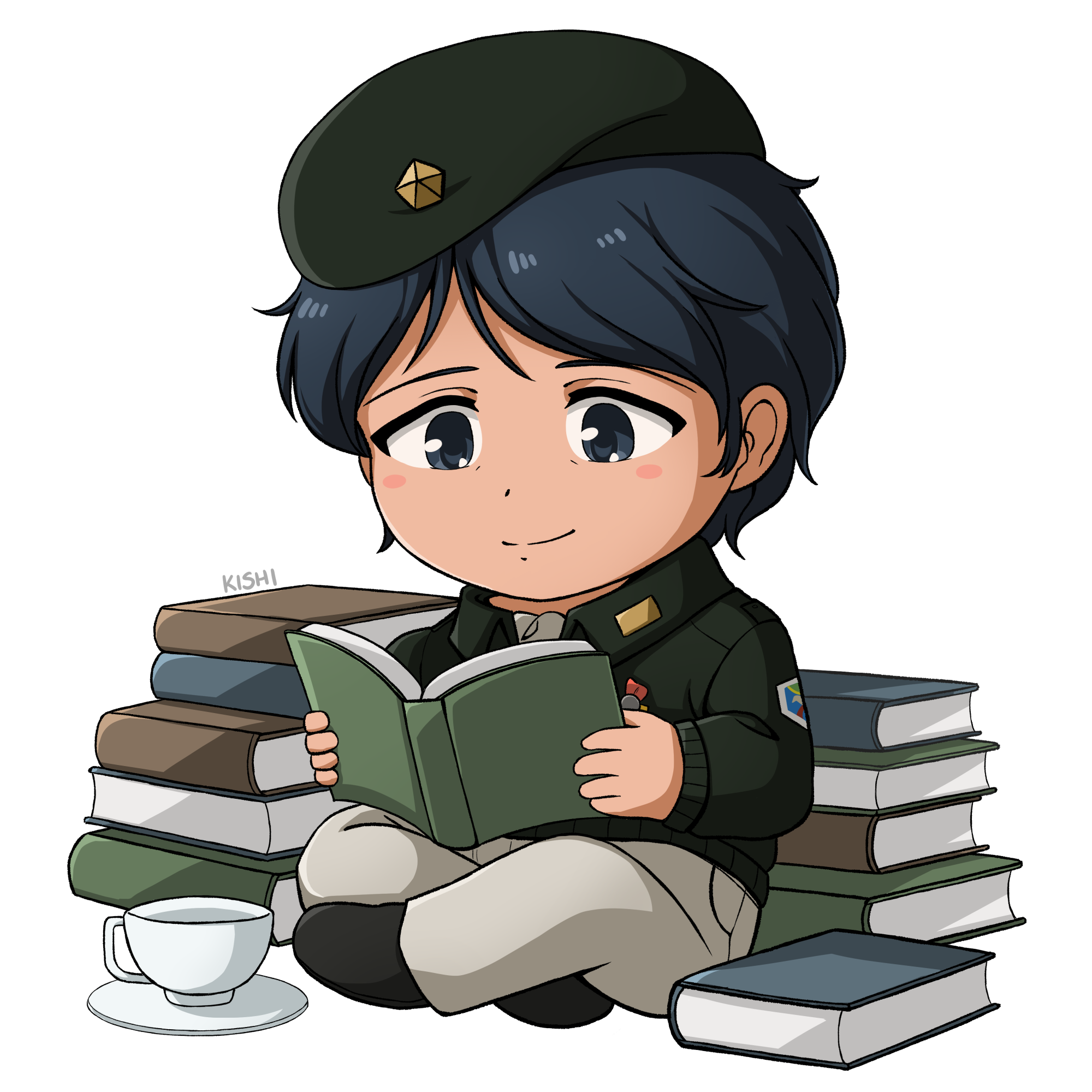

This pamphlet was released in 2022 to coincide with the 4K remaster of the movies My Conquest is the Sea of Stars and Overture to a New War. In this series, I’ll be translating the voice actor commentary section.
This is part 1 of 5. For the full list of entries, click here (will update as I go).
Ryō Horikawa (堀川りょう)
Role: Reinhard von Musel (Lohengramm)

When I was dubbing for this film, I was still in my mid-20s and was surrounded by very impressive senior actors. It was a work that people also called the “Legend of the Galactic Voice Actors.” I essentially play an audacious character (laughs), and I guess people thought I wasn’t nervous because of my role as Reinhard, but deep down I was pretty nervous. I think that just being in the same space as my seniors had a huge, unconscious influence on me.
I didn’t expect it to become such a long-running series. I was selected through an audition, but the only works I passed through auditions for were this one and the first anime I starred in, Yume Senshi Wingman. So I was very happy to be offered the role, but the first installment, My Conquest is the Sea of Stars, started out as a pilot episode, so I thought it might end there. Then the OVA series started, a spin-off was made, and before I knew it, the zodiac had gone through a full cycle, and I was like “what?!”. It was around that time that I started to realize that this was something that would last.
I believe that the screening of this 4K remastered version was made possible because it is loved by so many people and there are many who want to see it. It’s amazing, isn’t it? Of course, the original work is wonderful, the animation is wonderful, and we actors gave it our all, even if our capabilities are small. I think that we became a good team and it came to fruition in a positive way. It’s the greatest fortune for an actor. I myself watched it when I was feeling down and it really encouraged me. I felt like it was telling me not to be disheartened at a time like this.
I was completely absorbed in it while I was recording for it, but now that I’ve watched it again, I think it’s great how the lines are written in literary rather than colloquial style, and how elegant it is. They speak in exactly the same way as they’re written, and the Imperial Army in particular sound like warlords from the Sengoku period. Even the interactions during battle are always written in formal language, even if they’re jokes, and there’s no use of language like “Don’t mess with me, you idiot” like in the Free Planets Alliance. In particular, Reinhard’s lines, such as “May the grace of the great god Odin be with you,” are very cool. I don’t think I’ll ever say that anywhere else though (laughs). In short, it’s a space version of Romance of the Three Kingdoms, with “卿は” [kei wa] in place of “おぬしは” [onushi wa],[1] so I thought of it as a period drama. It was a fresh experience for me because it’s rare to see that in other works.
I have met Yoshiki Tanaka-sensei, the original author, twice. He was a very quiet person, but he seemed very kind. On set, Director Noboru Ishiguro would communicate with Sound Director Susumu Aketagawa-san. We would often receive instructions from Aketagawa-san, but generally we were left to our own devices. I think I also heard from producer Masatoshi Tahara-san that “you don’t have to think of it as an anime.”
At first, both I and the staff went through a process of trial and error to create the character of Reinhard. In particular, I hadn’t read much of the original work before I joined the anime production, so I was confused when I saw he was a 20-year-old senior general, but I eventually understood that it was part of the worldview. He has a strong sister complex (laughs), but at the same time, Kircheis is at his core. Kircheis is his very loyal best friend who has been with him ever since they met as children and decided to conquer the universe together. Reinhard probably realizes that his best friend has feelings for his sister, Annerose, and Annerose may have known too. In that scene, she tells Kircheis, “Always keep an eye on Reinhard,” and “If there comes a time he won’t listen to you, then that’s the end of my little brother.” After hearing this, Kircheis swears to himself, “I will protect Reinhard even at the cost of my own life.” He thinks about what makes Annerose happy first and foremost. So Kircheis has both affection for Annerose and friendship for Reinhard, which is why they are so united. While Reinhard pushes forward without looking back, Kircheis reliably follows up, which I think is a wonderful combination.
Apart from my own role, the one who left the biggest impression on me was Yang Wen-li. Rather than just liking him, I’d like to play him. He is the polar opposite of Reinhard. The actor who played him, Kei Tomiyama-san, was a very quiet man, but he was also a wonderful gentleman who gave very accurate and precise advice at crucial moments.
Although this work was created 34 years ago, it has not lost any of its luster, and the more you watch it and mull it over, the more you will appreciate it. I would be grateful if you would continue to enjoy it again and again. Now that it has been made into 4K, I hope it will continue to be passed down through generations. It makes me excited to think that this work will remain for hundreds of years even after we are gone.
PROFILE
Ryo Horikawa. Born February 1st. His major animation roles include Yume Senshi Wingman (Kenta Hirono), Dragon Ball (Vegeta), Detective Conan (Heiji Hattori), Saint Seiya (Shun Andromeda), Magical☆Taruto-kun (Tsutomu Harako), and many more.
Translator Notes
- While in English “you” is a standard second-person pronoun, there are a variety of them in Japanese. “卿” [kei] in particular is an archaic term. It’s honorific or respectful language used to address someone of equal or lower status. “おぬし” [onushi] has the same meaning but is used by Japanese warlords
